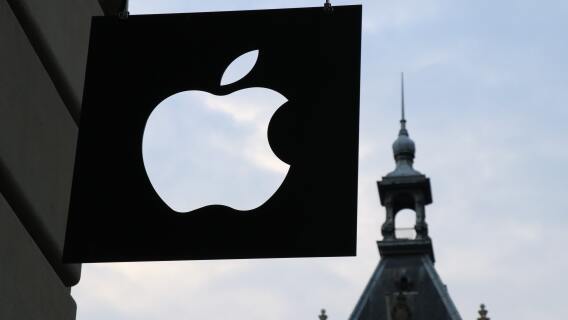Apple (AAPL) and Amazon (AMZN), two of Wall Street’s true heavyweights, have long been mainstays of many investors’ portfolios. Even the lay investor knows that, which is why they’re perhaps the two stocks my investing-agnostic friends and family members most frequently ask me about. Specifically, what they ask is: Which is the better long-term investment going forward? With that in mind, I thought it might be useful to break it down with an Apple vs. Amazon stock tale of the tape.
There’s a lot to like about both companies, of course.
Apple remains a cash cow, generating $195 billion in gross profits over the last 12 months, and it’s been using that cash to buy back shares (including $91 billion worth in its last fiscal year) in an effort to flex its financial muscle and lure more investors.
[text_ad]
Amazon, meanwhile, is arguably the most diversified company in America, having revolutionized the way people shop, launched a video streaming service that is neck and neck with Netflix (NFLX) in market share, created a profitable cloud computing wing, etc.
But neither company is without its flaws.
Apple has become something of a one-trick pony under Tim Cook, churning out a seemingly endless line of iPhones but failing to innovate the way it did under the late Steve Jobs. And while it may be fiscally prudent not to spend money hand over fist on the newest AI models (the way some of its peers are), it also leaves the company without the attention-grabbing headlines that the other Mag. 7 companies are generating.
Even their foray into streaming has been a mixed bag, with the Apple TV+ streaming service garnering only 7% of streaming eyeballs despite the success of shows like Ted Lasso, The Morning Show, Severance, and, more recently, Pluribus.
The problems with Amazon, meanwhile, have more to do with the stock itself—namely, its performance. AMZN has been the worst-performing Magnificent 7 stock in the last year and over the last five. In fact, it’s the only Mag. 7 stock that hasn’t doubled in the last five years.
So let’s take a closer look at AAPL and AMZN, broken into a few key numbers:
Tale of the Tape: Apple (AAPL) vs. Amazon (AMZN)
Trailing P/Es: AAPL 36, AMZN 32
Forward P/Es: AAPL 33, AMZN 28
Estimated next-year sales growth: AAPL 6.6%, AMZN 11.1%
Cash per share: AAPL $3.70, AMZN $8.81
Institutional ownership: AAPL 64.3%, AMZN 66.7%
On value, Amazon has the edge on both trailing and forward PEs, likely owing to that half-decade of underperformance.
Amazon has more cash and cash per share, with $94 billion in total cash compared to “only” $55 billion for Apple. Meanwhile, the companies are both heavily owned by institutions, but AMZN does have a slight edge there.
From a fundamental perspective, you’d have to say that’s advantage Amazon.
So now let’s move to some technical analysis of the two stocks.
Like most growth stocks, AMZN was flying high until the end of 2021, touching as high as 187 a share (split-adjusted) before pulling back to the low 100s in May and June, bouncing in the late summer, and selling off to pre-pandemic levels to close out the year. Since the end of 2022, however, it’s been a totally different story, with AMZN up 188%.
Apple stock has also done well, rising more than 102% since the beginning of 2023. But it’s come on the heels of far less volatility, as AAPL fell only about 28% in 2022’s bear market (from peak to trough), compared to AMZN’s 54% decline.
In essence, AMZN was flying higher going into the bear market, so even though its three-year returns are trouncing APPL’s, much of that is the bounceback, which net-net, has made AAPL the better holding over the last five years.
The key takeaway is that AMZN does better in bull markets but worse in bear markets (beta of 1.38 vs. a beta of 1.09 for AAPL), so given that the bull market remains in full force, I prefer AMZN in the battle of Apple vs. Amazon stock.
AMZN Stock Is the Winner
Both AAPL and AMZN are stocks you’d be wise to hold in your long-term or retirement portfolio. But I think Amazon has the more diversified list of offerings.
If you want to know what other, less obvious growth stocks we’re currently recommending, consider taking a trial subscription to Cabot Top Ten Trader. It’s a weekly list of the market’s 10 best momentum stocks, complete with loss limits and buy ranges.
[author_ad]
*This post is periodically updated to reflect market conditions.

